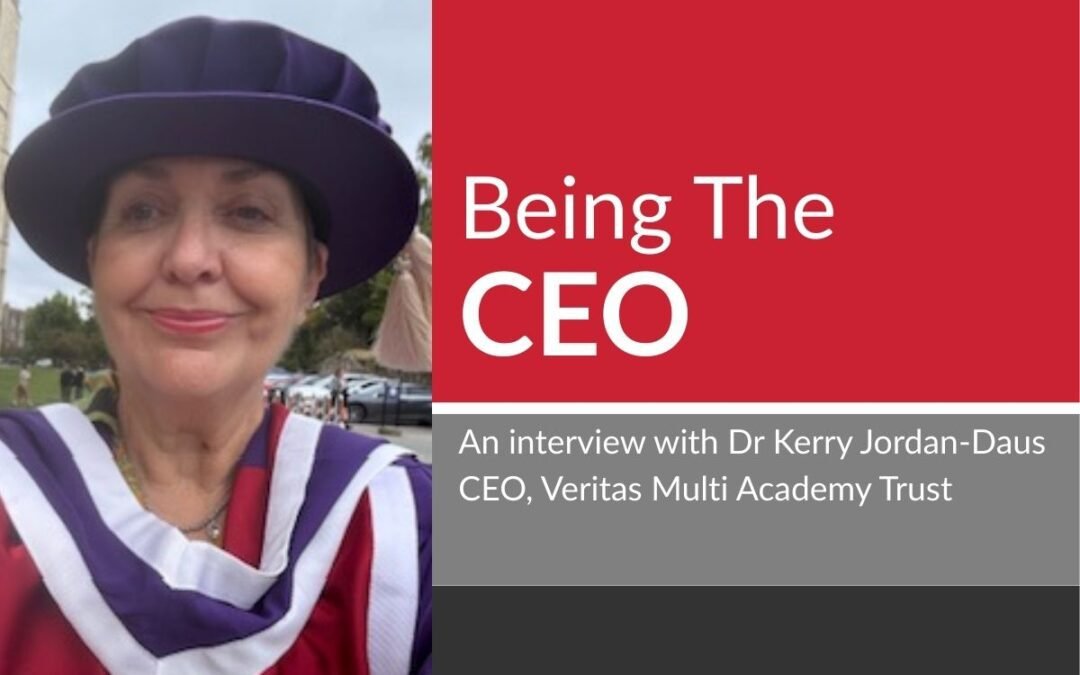Forum Strategy’s Being The CEO report 2023, shows a steady majority of trusts (two thirds) have a Chief Operating Officer (COO). The role is an increasingly vital part of trust executive teams across England, mirroring other industries and sectors where it has long played a key part in organisational success, efficiency and effectiveness. But how can COOs ensure they get the very best from the role and add maximum value to the organisation? And, what are we learning from our years’ of experience working closely with COOs in trusts across the country through our national #TrustLeaders COO network? Here are our ten top tips!
1. Ensure there is a clear job description in place.
Being really clear about the purpose and key responsibilities of the role is critical to ensuring as COO, you are clear on expectations from the outset. Linked to this, there needs to be clear balance and distinction between the roles of CEO and COO, ensuring the COO role reflects your specific strengths, skills, and experience, as well as clarity around line management responsibilities. The roles of CEO and COO often need to work ‘hand in glove’ and therefore ensuring alignment and compatibility is important. In Michael Pain’s book, ‘Being The CEO’, he talks about these roles as ‘finger and thumb’. The two roles are very different, but are most useful when working in conjunction, complementing one another. In this Forum Strategy article, the roles are described by David Horn and Charlie Tebbutt as a ‘professional marriage’. Regardless of terminology, ensuring clarity and balance between the two roles in terms of skills, responsibilities and perspectives is undoubtedly at the heart of successful organisational leadership. Michael Pain – author of Being The CEO – also shares his thoughts on what the COO role entails (and its relationship with the CEO role, here.
2. Accept that you are not expected to know it all, but you do need to identify where your strengths and your weaknesses lie.
As a COO and in an executive leadership position, you cannot know everything about all aspects of the organisation and nor are you expected to, given your role is one of oversight rather than direct delivery and given a COO’s remit can cover a breadth of areas from oversight of HR and IT, to estates and procurement. However, you will undoubtedly have areas of strength and weakness and it is important to be honest about these. Successful COOs build sufficient capacity and expertise in their teams to cover their blind spots, and they upskill themselves where necessary. You are not expected to come into the role knowing it all, but you do need enough knowledge and insight to ask the right questions of your team and to know if things are on track (see also CPD later on).
3. Learn to delegate well, recognising the big difference between delivery and oversight.
The nature of the COO role is such that no one person could deliver everything that often falls within the remit of the role, particularly as organisations grow and work at scale. Learning to ‘let go’ and delegate to others across your team and organisation is a vital part of success in the role and in taking care of your wellbeing. Linking back to the previous point, this is where having a team who you trust and who have the skills and capabilities to deliver – as well as the systems in place to monitor progress and challenges – becomes ever more vital.
4. Manage your diary well and prioritise effectively – don’t fall into the trap of doing it all.
Your impact as COO will be directly proportionate to your ability to channel your time and energy to the areas that need you most, and having the discipline to avoid distractions. It will be important in the role to find the balance between allocating time for your CEO, your direct reports, schools, partners, CPD and ongoing learning, and your own wellbeing. Easier said than done when there is a huge list of priorities to balance, we know. In this Forum Strategy article, we explore this challenge in more detail. Project and programme management is your friend in this respect as it will allow you to keep oversight and to hold different people to account for delivery. Another leadership ‘superpower’ is the ability to say no to things as well as yes, even at times, to your CEO and Board if your experience tells you something isn’t feasible (or feasible right now). This is also the way you can avoid ‘scope creep’ in the role, by ensuring you feel comfortable in saying no or not right now. Or, linking back to point 3, finding ways to delegate effectively rather than take it on directly.
But, you must also be prepared for crisis and firefighting – it comes with the territory. Consider who your ‘crisis team’ might be – likely a mix of expert partners in various specialisms such as media and communications, legal and others. Keep the CEO and the Board in the loop when crisis arises and in outlining what actions you think need to be taken to mitigate. As Tim Brighouse once said, “regard crisis as the norm, and complexity as fun!”
5. Prioritise relationship development – there is no substitute for great relationships.
Great leaders recognise how important the development of relationships is to the success of the organisation and within that, how critical it is for people to feel recognised and valued. In a trust context, it’s really important that the work of the central team is well connected and integrated with the school leadership and teaching workforce and that the trust works as one organisation bound by a shared vision and mission. This means putting in time, energy and effort to be visible and meeting people from all parts of the organisation regularly. There are a range of models across the trust system that work well depending on the trust’s geography and context – for example, some central teams are based on school sites and others have a separate site elsewhere. This is not one we can be prescriptive about. The site location may be less important than the principle, which is to be visible and create meaningful relationships across the full workforce within the trust, ensuring connectivity and deep appreciation of the experiences of all. This might well be by being regularly present at school sites in terms of office location, but it might be just as effective to undertake regular focused visits, online meetings and to keep in contact in other ways. When relationships are strong and cohesive, this is where great work happens and the COO role, in having oversight of many areas of what a trust does, has a key role to play in bringing people together.
6. Intelligence and contextual wisdom is your friend.
Being ‘evidence informed’ is another one of those leadership superpowers often referred to across many roles, but it’s absolutely a vital element of the work of a COO. Using both qualitative and quantitative information to inform and shape the work of the trust enables decisions to be made that reflect the context within which we work. Staff surveys, parent surveys, staff absence data, retention data, partner and stakeholder perspectives, research reports and much more. This is all valuable insight into where we are doing well as an organisation, but also, where we need to get better and why. When working at scale, data and insight matters even more. In this Forum Strategy article on ‘pure accountability’ we detail some ways in which this intelligence might be gathered. Tara Phillis, COO of the Venturers Trust, also refers to the importance of intelligence and discussion in this article for Forum about the CEO/COO relationship. Linked to this, in a financial climate which is hugely challenging, finding sources of information about where additional funding might be accessed or ideas for generating income has never been more important. Forum Strategy’s fortnightly funding and grants briefing for members is an example of this as it includes dozens of opportunities for schools and trusts in each edition.
7. Ensure you have time with the Board.
As COO, you need a direct line of sight to the board; that doesn’t necessarily mean duplicating or working in parallel to the CEO, but you must be aligned. COOs must be able to access direct Board steer, challenge, and support to inform the work they lead across the trust and to be able to have healthy debate and discussion with the CEO at times about the ways in which that steer, challenge and support might translate into action for the organisation. Alongside, the COO can help to keep the Board informed and updated on particular areas and issues that fall within their remit, complementing the CEO in doing so. It will be important to ensure there are some clear and agreed protocols in place to support alignment and make sure there is no duplication in terms of yours, and the CEOs’, work with the Board.
8. Network with others and don’t neglect your ongoing CPD.
Linking back to our point earlier about time management, we know that it can be tough to prioritise CPD and network building in a hugely busy role but, if we neglect it or continually put it down the priority list, we do so at our professional peril. We know the pace at which society and the context within which we work, learn and live is swift and it’s therefore vital to the success of the organisation that the COO keeps learning within and beyond the education sector. AI, recruitment, sustainability and estates, HR, managing financial pressures and the cost of living crisis and much more, are all cross-sector issues where there are vast amounts of learning and sharing to be had. Likewise, connecting with peers and those who are facing similar challenges within the sector is just as important in order to combat those feelings of isolation and to learn how others are approaching particular priorities. Forum Strategy’s national #TrustLeaders COO network offers these opportunities to support COOs to feel connected, informed and professionally challenged in their roles.
9. Get a coach and/ or mentor.
As Sir Steve Lancashire often says, investing in your personal development is an act of professionalism and one way in which you can do this (alongside point 8 above) is by working with a coach or a mentor. Coaching and mentoring have long been recognised as highly effective tools for self-reflection, development and professional challenge. Most executive leaders nowadays have, had, or currently have, a coach or mentor and will cite it as one of the most powerful professional development tools there is. Executive coaching is the work with a qualified professional who, through expert questioning, enables you to work through challenges and issues for yourself, reflecting on your own practice as you do so – they do not necessarily need to have had experience of your role or sector in order to be a highly effective executive coach and usually won’t offer direct advice, unless asked to do so. Executive mentoring is different to coaching as this is work done with someone highly experienced and credible who has undertaken the role successfully (or might well still be doing the role) and can offer the wisdom of that experience to you. Which development tool you decide to use may depend upon where you are on your professional development journey but both can be highly effective. Forum Strategy offers both of these as an additional service to members of our three national networks.
10. Wellbeing – don’t forget to take care of yourself.
COOs are important, busy roles at the heart of the vast amounts of work a trust does and so it can be easy to stay head down without pausing for breath or considering your own wellbeing (even though often, you will be overseeing wellbeing support for the rest of the organisation). But, in fast paced roles that oversee vast and diverse areas of business, burnout and exhaustion are a big risk factor and so it becomes even more important to be consciously intentional about keeping an eye on wellbeing. It is also a great way of modelling sustainable leadership to those around us, who undoubtedly take our lead. This Forum Strategy article summarises well the challenge and importance of leaders prioritising their own wellbeing as much as they do the wider workforce, and offers some useful hints and tips about how you might approach it.
Forum Strategy runs an established national network for Chief Operating Officers.


